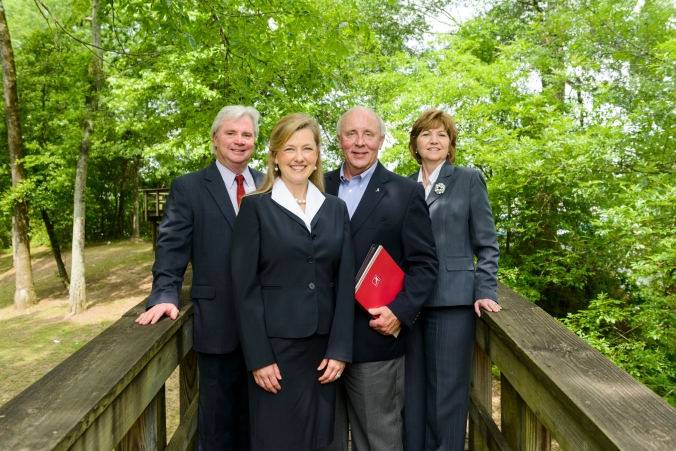
There are experts aplenty who will opine that the holidays are a stressful time for everyone. While these days can create anxious moments for each one of us, it should be a time of joy, gathering with family and friends, and hope for the future. I, for one, embrace these days and endeavor to find the good associated with the holidays.
Unfortunately, some people experience extremely difficult issues during the holidays. This creates unique challenges to the HR professional in many forms. I’m not talking about the simple part of whether an employee is paid for the holidays.
The holidays are about our organizational culture. Whether organizations like it or not, employees look to the company leadership during this time with anticipation, concern and sometimes plain fear. I believe there is an important role for HR to play in making this time meaningful and yes, enjoyable. Allow me to explain:
First, bring your HR staff together and allow the team to discuss some potential problem areas that could arise for your employees and their family members. Share these thoughts with your management staff. Perhaps there are some employees and their families that may need assistance. If the firm has an Employee Assistance Program (EAP), encourage your employees to use it. Remember, being a good corporate citizen is not about bragging about your actions, rather, it is how we handle our actions.
Next, using your corporate policy handbook, determine if there are certain nonprofit service organizations your firm can assist during this time. There are many wonderful groups out there providing great support for our citizens so it would be a great opportunity to work with your employees to find the right groups to assist. Obviously, ensure that you have buy-in from executive-level leadership and legal counsel for an outreach campaign within the community.
The question also arises as to the religious nature of the holidays and whether the company even celebrates the holidays, including the holidays of others. These are questions best answered by your executive leadership and general counsel. Our business leaders should always appropriately understand and appreciate the viewpoints of all of our employees.
Should we or should we not pay a holiday bonus? This column is not of sufficient space to adequately address this much-debated topic. The evidence may not be empirical but little doubt exists that if you started a traditional of giving some cash for the holidays but decide this year to stop the practice – be prepared for the employee backlash.
Ah… what about decorating the office? Doesn’t it make your employees feel great when they see the office is outfitted with a holiday tree, or ornaments or cards? I know it makes me feel good to see it. You can bet that the vast majority of staff love the decorations and even take part in the activities. But, let’s again remember the need to be sensitive to others who may not celebrate this holiday season. Above all, create an atmosphere of inclusion in the festivities, not isolation for those who may differ in their beliefs.
It is said that this is a time for giving. Employees may want to swap gifts with each through name exchanges or random drawings. They ask, “Do I buy a gift for my employees? Should I gift my boss or her boss? How much do we pay for a gift for a co-worker? What if the employee doesn’t want to give or, worse yet, cannot afford to give others a gift? How do we handle the pressure of gift giving to each other?”
Remind employees there is no requirement from the company that an employee participate in a gift exchange during the holidays. This is a personal choice and not sanctioned by the company. As an HR practitioner, one has plenty of work pressures anyway so it should not be placed as the arbiter of gift exchanges at work. The policy should be that gift exchanges are neither encouraged nor mandated.
The Holiday Party – should we or shouldn’t we? On the heels of the tragic act in California, many will question whether these events are necessary anymore. This is a decision left to executives and your general counsel. In my opinion, these events are good for morale, especially if it take places at work where employees get an opportunity to see their fellow employees differently than what they see them doing at work every day. If the company has sponsored them in the past, then I encourage it to consider a party going forward. The best holiday events are the ones at the workplace.
Lastly, drinking at any of these events must be disallowed. There are simply far more chances of injury that can occur at the parties where alcohol is served. The events should be enjoyable to everyone but there is absolutely no reason to allow alcohol to enter the event. This protects the employee and employer. Too many cases and laws exist, which place employers at peril should they endorse the use of alcohol at any company function. Seek counsel to craft the appropriate message for employees, and this message should be generated at the chief executive levels and provided to all of your employees.
Hope these tips help, and to everyone, have a safe and happy holiday season.
P.S. Holiday pay is usually awarded when the employee works their last scheduled workday before the holiday, and their next scheduled workday after the holiday. TIP: Remember, some employees take vacation days before and after holidays, so this must be factored into the pay scenario.
Article by Larry Baldwin, SPHR, SHRM-SCP, MBA – Director of the Human Resource Institute at Culverhouse College of Commerce in The University of Alabama. A former HR Management executive and professional with over 30 years extensive experience management experience.















